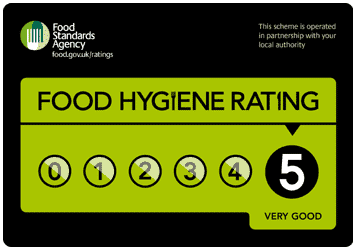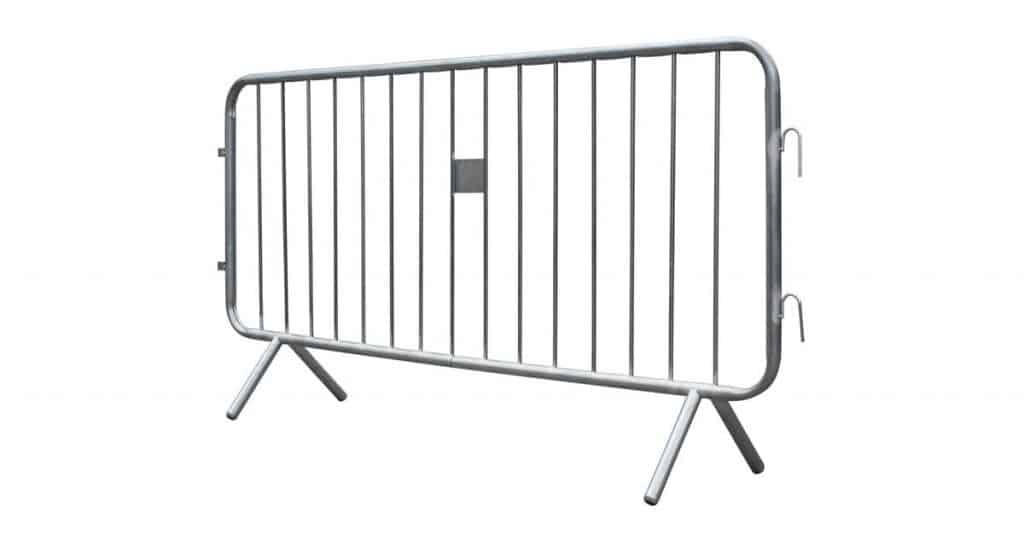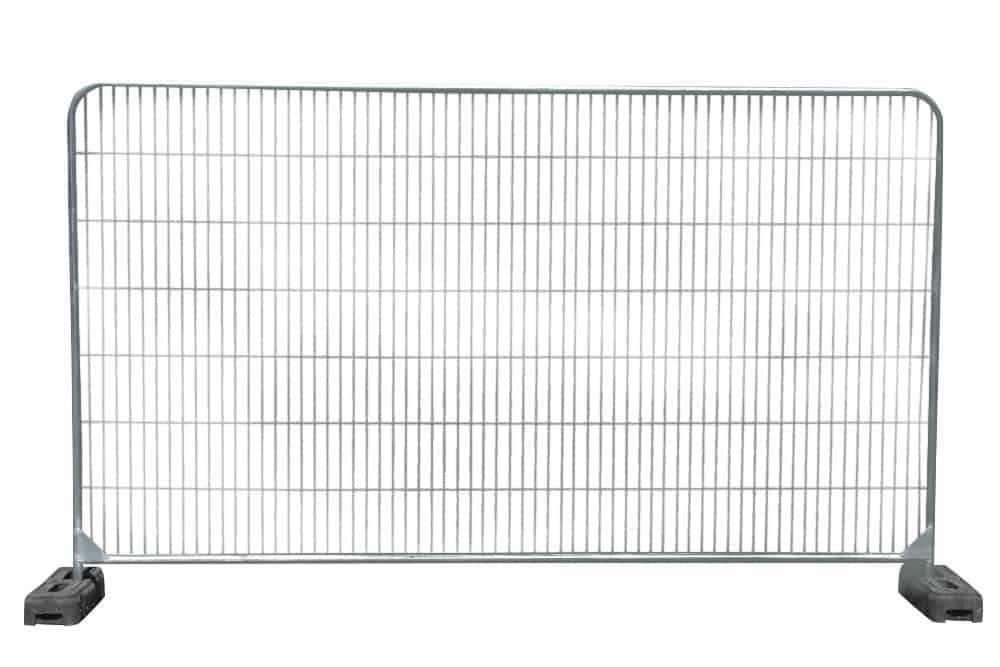Event design is the foundation of any successful gathering, shaping how attendees experience your event from start to finish. It involves careful planning, creative vision, and practical coordination to bring your goals to life and ensure everything runs smoothly.
Understanding this process helps you create events that leave a lasting impression. You will explore how to set clear objectives, know your audience, develop a concept, and manage every detail, including visuals and logistics.
This structured approach allows you to tackle challenges early and adapt as needed. Whether you are new to event planning or want to improve your skills, knowing the step-by-step event design process is essential.
This knowledge equips you to handle everything with confidence and deliver a well-crafted experience.
Key Takeaways
- A clear plan and understanding of your audience are vital for success.
- Coordination between creative and practical elements ensures smooth execution.
- Reviewing the event afterwards helps improve your future designs.
What Is Event Design?
Event design shapes how your event looks, feels, and flows. It controls the visual style, layout, and atmosphere to make sure your goals are met and your guests have a clear experience.
You focus on creating a strong theme, managing details like colours and lighting, and making sure everything works together smoothly. Your role goes beyond just planning; you bring ideas to life in a way that matches your purpose.
Core Principles of Event Design
The core principles help you plan an event that makes sense and connects with your guests. First, you start with a clear objective.
This means knowing what you want your event to achieve, like raising awareness or celebrating a milestone. Next, you shape the theme and atmosphere around that goal.
You select colours, decorations, and layouts that support your message. You also need to think about the guest experience.
This includes how guests move through the space, what they see first, and what emotions the event should evoke. Finally, consistency is important.
Every design choice—from invitations to lighting—should fit together. This creates a memorable, cohesive environment.
Event Design vs. Event Planning
Event design and event planning often overlap but focus on different things. You handle design when you decide how the event feels visually and emotionally.
Event planning focuses more on logistics, like booking venues, arranging catering, and managing schedules. Design is creative and strategic, involving decisions about space, style, and mood.
Planning is practical and operational, ensuring the event runs smoothly. When done well, design and planning work hand in hand to create a successful event.
You can learn more about balancing these tasks at Planner’s Lounge.
Roles of an Event Designer
As an event designer, you take charge of the event’s look and feel from start to finish. Your tasks include:
- Developing a design concept based on the event’s purpose.
- Creating mood boards or visual guides to show clients how the event will appear.
- Choosing colour schemes, furniture, lighting, and décor to build the right atmosphere.
- Communicating with vendors like florists, decorators, and technicians to ensure your vision is executed.
You also keep the design aligned with the event budget and timeline. Your work affects every detail to make sure guests feel the intended impact.
For more on these responsibilities, review advice from Cvent Blog.
Understanding the Event Design Process
The event design process involves a clear plan and defined roles to create a successful experience. You will need to follow specific stages, understand why a structured plan matters, and know who to involve to bring it all together.
Stages of the Event Design Process
The event design process typically starts with defining your event’s goal. This guides every decision you make.
Next, you analyse your target audience to know their needs and preferences. Then, you develop the theme and layout, including venue setup, decorations, and technology.
After that, you plan logistics like catering, transport, and scheduling. Finally, you focus on execution and evaluation.
This includes overseeing the actual event and gathering feedback to improve future events. For more detail on these steps, you can explore a clear event designing process guide.
Importance of a Structured Approach
Using a structured approach saves you from chaos and confusion during planning and execution. It allows you to clarify your objectives early and stay focused on what matters.
When you organise each task clearly, you can track progress easily. This helps avoid last-minute problems or overspending.
A clear plan also ensures everyone involved understands their role and deadline. You reduce risks by preparing for challenges in advance.
Key Stakeholders Involved
Successful event design depends on involving the right people at the right time. You will work with clients or organisers who set the event goals.
Your creative team, which may include designers and technicians, brings the vision to life with visuals, layout, and audio-visual tools. Vendors like caterers, rental companies, and transport providers supply essential services.
Lastly, staff and volunteers execute the plan onsite, managing attendees and logistics. Clear communication between these groups is key to smooth event delivery.
You can learn more about the roles and collaboration in detailed event design explanations.
Initial Concept Development
Starting your event design means focusing on clear goals, gathering ideas, and understanding exactly what your client wants. These steps shape the whole event and guide your decisions on style, layout, and activities.
Defining Objectives and Goals
You need to be clear about what your event aims to achieve. Objectives can vary from increasing brand awareness to celebrating a milestone or educating an audience.
Define specific, measurable goals to know how success will be judged. Ask yourself:
- What do you want attendees to feel or do?
- Are you aiming for a certain number of participants?
- Is there a key message to communicate?
Writing down these goals gives your event a strong foundation. You will use them to steer every part of the design, from the theme to the schedule.
Research and Inspiration
Gather information about similar past events, industry trends, and audience preferences. Look for colours, layouts, or types of activities that might fit your goals.
Use the following as inspiration sources:
- Online event portfolios or galleries
- Current design trends in your event’s industry
- Feedback or reviews from past events
This research helps you create ideas that are fresh but also appropriate. It makes your event more relevant and engaging for your target audience.
Client Consultation and Briefing
Talking with your client is critical to align your vision with their expectations. During your meetings, ask detailed questions about their budget, preferred style, audience profile, and essential elements.
Make sure to:
- Take notes during every discussion
- Confirm your understanding by repeating key points back
- Agree on deadlines and communication methods
Having a complete, written briefing document prevents misunderstandings and keeps the project on track. This document acts as a reference throughout the whole design process.
For more details on creating an event design plan, see this guide on event design and theme development.
Strategic Planning in Event Design
You need to carefully prepare key elements before moving forward with your event design. This includes setting a clear spending plan and deciding on the event’s main message and atmosphere.
Both will guide your choices and keep the project focused.
Budget Creation and Management
Start by defining the total amount you can spend on the event. Break this down into categories such as venue, catering, entertainment, decorations, and technology.
Keep track of your expenses regularly. Use a spreadsheet or budgeting software to log all costs.
This helps avoid overspending and allows you to adjust quickly if prices change. Prioritise your spending based on what will have the biggest impact on your event.
For example, if engagement is critical, allocate more funds to interactive features rather than less important visuals. Always leave a contingency fund of about 10% to cover unexpected costs.
This buffer helps you handle surprises without compromising the event quality.
Theme and Narrative Establishment
Choose a theme that matches your event’s purpose and appeals to your audience. The theme should influence every aspect, from visuals and colours to activities and messaging.
Craft a clear story or narrative for your event. This gives the event a sense of direction and helps attendees connect emotionally with your message.
Use your theme consistently across all materials, such as invitations, signage, and social media. This reinforces the event’s identity and improves the overall experience.
Ensure the theme is achievable within your budget and venue. It should feel natural, not forced, to create a memorable and cohesive atmosphere for your guests.
For more on event design strategy, see this guide on event design services and responsibilities.
Design Elements and Visualisation
The design elements you choose shape how your guests experience the event from moment one. Every detail, from how people move to the look and feel, has to work together.
Technology also plays a key role in enhancing visual impact and engagement.
Venue Layout and Flow
Your venue layout guides how guests move and interact. Start by mapping out entry points, seating, and key areas like stages, bars, or food stations.
Make sure passageways are wide enough to avoid crowding and allow easy access. Think about the guest journey.
Place important zones logically — for instance, keep registration near the entrance. Also, consider different zones for networking, relaxation, and presentations.
Flow impacts comfort and engagement. A good layout encourages guests to explore without confusion, while a poor layout can create bottlenecks or leftover space.
Decor and Styling
Decor sets the atmosphere and reinforces your event’s theme. Choose colours, materials, and furniture that match the mood you want to create.
Use lighting strategically – it can highlight focal points and influence emotions. For example, warm light is inviting, while cooler tones can feel modern or clinical.
Keep styling consistent across the venue. Cohesive signage, thematic props, and branded elements help guests connect with your message.
Prioritise comfort alongside style. Comfortable seating and clear sightlines boost guest satisfaction and engagement.
Use of Technology in Event Design
Technology can transform your event’s visual experience. Projection mapping, LED walls, and custom graphics personalise spaces and keep guests engaged.
Use digital signage to direct guests and display live info such as schedules or social feeds. This reduces confusion and keeps your audience informed.
Interactive tech like apps or virtual reality adds immersion but test these tools thoroughly before the event. Poorly working tech can distract or frustrate attendees.
Be mindful of power supply and Wi-Fi coverage to support your devices seamlessly.
Collaboration and Coordination
Effective communication and clear agreements are crucial when working with different groups and people. Knowing who does what and managing expectations help keep everything on track and prevent misunderstandings.
Working With Suppliers and Vendors
You need to build strong relationships with suppliers and vendors. Start by clearly outlining your event’s needs, timelines, and budget.
Make sure contracts specify every detail like delivery times, payment terms, and what happens if things go wrong. Regular check-ins help you monitor progress and solve problems early.
Use a shared schedule or project management tool to keep everyone informed. If any changes occur, communicate them immediately to avoid confusion.
Keep a list of reliable vendors and update it after every event. Trust and reliability are key factors when selecting suppliers for your event.
Team Roles and Responsibilities
Defining roles clearly within your team prevents overlaps and gaps in the planning process. Assign specific tasks so everyone knows what they are accountable for.
Use a simple chart or table to map out who handles which part of the event. Make sure your team understands deadlines and how their role fits into the bigger picture.
Encourage regular updates during meetings or via messaging apps. Clear communication channels reduce mistakes and improve teamwork.
Set expectations early, including what decisions team members can make independently and when they need approval. This keeps the workflow smooth and efficient.
Implementation and On-the-Day Management
You need to follow clear steps to get everything ready before the event starts. Managing tasks like setup, coordination, and quick problem-solving helps avoid delays and keeps everyone informed.
Pre-Event Set-Up Procedures
Before your event begins, you must confirm all logistics are in place. This includes setting up equipment, arranging seating, and testing technology like microphones and projectors.
Make a checklist for every item that needs to be ready. Assign roles to your team members so they know exactly what to do.
Label areas clearly with signs to avoid confusion. You should also have a timeline showing when each setup step must be completed.
Check health and safety measures, such as emergency exits and first aid kits. Make sure suppliers deliver everything on time and that items match your event plan.
Live Event Coordination
During your event, communication is key. Use radios or messaging apps to stay in touch with your team.
Monitor the schedule closely and ensure speakers or performers stick to their times. Have a central control point where you can oversee operations and quickly respond to changes.
Keep guests informed about any updates or changes in the programme. Manage crowd flow to avoid overcrowding and direct attendees where they need to go.
Ensure catering, registration, and technical teams are working smoothly together.
Troubleshooting Common Challenges
Be ready to solve problems quickly. Common issues include technical failures, late arrivals, or last-minute changes in the programme.
Create a list of possible problems and solutions beforehand. For example, if the microphone stops working, have backup equipment nearby.
Stay calm and delegate tasks to your team so you can focus on priority issues. Communicate clearly with guests or speakers if delays or changes occur.
Keep contact details for all suppliers and emergency services accessible for quick support. Being prepared will help you keep control when unexpected situations arise.
Evaluation and Post-Event Analysis
You need to measure how well your event met its goals and collect concrete data to improve future events. This involves gathering attendee feedback and reviewing key success indicators like engagement and attendance.
Collecting Feedback From Attendees
Start by designing simple, clear surveys for your attendees. Ask specific questions about their experience, such as event content, organisation, and venue.
Use multiple methods to collect feedback, like online surveys, face-to-face interviews, or feedback forms during the event. Encourage honest responses by keeping surveys short and anonymous if possible.
Analyse qualitative and quantitative feedback separately. Look for patterns in comments and ratings to identify strengths and areas that need improvement.
Make sure to collect feedback promptly after the event while the experience is fresh in attendees’ minds.
Assessing Event Success Metrics
Review data points that show how well your event performed. Key metrics include:
- Attendance numbers versus your target
- Participant engagement, like session attendance or interaction
- Social media activity and post-event reach
- Revenue or fundraising results, if relevant
Use tools like registration reports, engagement trackers, and social media analytics to gather these numbers. Compare your results to your initial goals to determine success levels.
Highlight areas where you met or fell short of targets to guide your next event planning stage. Details on how to conduct thorough post-event evaluation can be found in this post-event evaluation guide.
Trends and Innovations in Event Design
New trends in event design centre on how you can make your events more eco-friendly and engaging. Focusing on sustainability and interactive elements helps create memorable experiences while meeting today’s expectations.
Sustainable Event Design Practices
Sustainability is no longer optional in event design. You need to use materials that reduce waste and energy consumption.
This includes choosing reusable or recyclable decorations, digital programmes instead of printed ones, and energy-efficient lighting. Catering choices also matter.
Selecting local, seasonal, and plant-based menu options can lower your event’s carbon footprint. Consider how you manage transport and accommodation to minimise environmental impact.
Using sustainable practices shows respect for the planet and appeals to attendees who value eco-friendly efforts. Adopting these methods can also reduce costs in the long run.
For more insights on green event ideas, see trends in event design here.
Incorporating Interactive Experiences
Interactive experiences turn passive audiences into active participants. Incorporate elements like live polls, Q&A sessions, and virtual reality to hold attention.
Technology plays a key role here. Use smart apps or wearable devices to track attendee preferences and customise the experience in real time.
You can also create networking opportunities through interactive platforms where guests can chat or collaborate. Balance your digital tools with face-to-face moments to keep engagement natural and meaningful.
Personalisation like this is a major trend shaping event design according to industry experts.
Common Mistakes to Avoid in the Event Design Process
One common mistake is not considering the attendee experience fully. Your design should focus on how guests move, interact, and feel throughout the event.
Overlooking this can lead to confusion and discomfort. Another error is failing to plan for technical issues.
Equipment can fail, so always have backups ready. Avoid unclear objectives.
If your goals aren’t well defined, your design may lack focus. Make sure you know what you want to achieve before starting.
Be careful about underestimating the number of attendees. This mistake causes problems with seating, food, and supplies.
Build in a buffer for last-minute guests from external factors like weather or competing events. Ignoring the event budget is a critical mistake.
Without proper budget planning, you might overspend or cut corners on important elements. Track costs carefully throughout the design process.
Poor check-in procedures can create long waits and frustrate guests. Design an efficient system to keep lines short and maintain a good first impression.
For a detailed list of mistakes to avoid, see this guide on the most common event planning mistakes.
Resources for Further Learning
To deepen your understanding of event design, consider exploring professional courses. The Professional Certificate in Meeting and Event Planning offers structured learning to improve your skills and keep up with industry changes.
You can also use practical guides to help you organise your events. A detailed event planning guide with checklist breaks down key steps and tools, making your planning process more efficient.
If you want a step-by-step framework, try the event management process that outlines seven clear phases. This can help you manage your event from start to finish.
For creative input, the event design guide presents 15 actionable steps. These will help you shape engaging and memorable experiences for your audience.
You might want a broad overview of all elements involved. An event plan guide explains how to organise every detail effectively, ensuring nothing is overlooked.
Use these resources to build a solid foundation in event design and management. Each offers practical advice and tools to help you run successful events.
Frequently Asked Questions
This section breaks down key steps and principles that guide event design. You will learn how to use design elements to improve your event, simplify planning with templates, explore creative ideas, and understand the practical skills you gain from training.
What constitutes the five key stages in creating an event design?
The five key stages include research, concept development, design planning, implementation, and review. Research helps you understand the event’s purpose and audience.
Concept development shapes your theme and style. Design planning involves laying out details like colours, lighting, and furniture.
Implementation is executing the plan with vendors. Review lets you assess success and areas for improvement.
What fundamental principles should be considered in event design?
You should focus on balance, unity, contrast, emphasis, and functionality. Balance ensures no part of your design overpowers another.
Unity keeps all elements consistent. Contrast draws attention to important areas.
Emphasis highlights key features, like a stage or display. Functionality makes sure your design meets the needs of attendees and organisers.
How can one employ event design elements to enhance attendee experience?
Use lighting, sound, décor, colour, and layout strategically. Lighting sets mood and highlights key areas.
Sound improves atmosphere and communication. Décor adds personality and ties to your theme.
Colour influences emotion and energy. Effective layout guides flow and creates comfortable spaces.
In what ways can event design templates streamline the planning process?
Templates provide a ready-made framework. They save time by offering structure for budgets, timelines, and layouts.
You can customise templates to fit your event’s needs while maintaining consistency. This reduces errors and makes communication with vendors clearer.
Can you provide some innovative event design ideas that cater to various types of events?
For corporate events, incorporate interactive tech like touchscreens or AR. For weddings, use themed lighting and personalised décor.
Festivals benefit from zoning different activity areas. Virtual events can use dynamic backdrops and real-time polls.
Always tailor ideas to fit purpose, audience, and budget.
What skills can be gained from undertaking an event design course, and how do they apply practically?
You learn project management, creativity, budgeting, and vendor coordination.
These skills help you plan efficiently and solve problems.
Courses also teach software for design and presentations.
You gain confidence in communicating ideas clearly to clients and teams.
Strong organisation and teamwork skills improve the overall quality of your events.



























